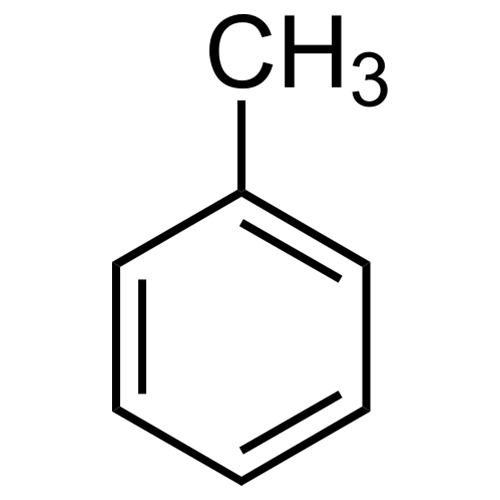Toluene
Toluene

What is it?
Toluene is a chemical that can be inhaled, ingested, or enter our bodies through our skin. It's an especially popular chemical in the world of manicures and pedicures as it's often found in nail polishes.
Syptoms of toluene exposure include but are not limited to, "irritation of the eyes and nose, weakness, exhaustion, confusion, euphoria, dizziness, headache; dilated pupils, lacrimation (discharge of tears); anxiety, muscle fatigue, insomnia; numbness or tingling of the skin; dermatitis."
Reference: https://bit.ly/1JNATGf
Key Information
- Long term exposure to toluene affect the central nervous system
- Repeated toluene exposure has also been linked to "spontaneous abortion"
More Information
According to OSHA the Occupational Safety and Health Organization, there are a few ways you can protect yourself from toluene:
- For cleaning and degreasing applications, substitute a water-based material that does not contain toluene.
- Substitute a water-based paint or adhesive for toluene or solvent based products.
- Substitute brush, roller or flow application for spray application.
- Use the smallest amount of the product that will get the job done.
- Ventilation is the most important protective measure to reduce the inhalation of toluene vapors where safer substitutes are not feasible. Ventilation can be a combination of local exhaust such as spray booths or enclosing and exhausting processes where toluene is evaporating, and room ventilation to capture those vapors that escape containment.
- Make sure the room ventilation in the area workers are using the material provides the air volume required by your local building code.
- Spray application should be done in a spray booth with local exhaust ventilation and no ignition sources in the area.
- If the use of toluene or materials containing toluene causes wetting of the hands, impervious gloves should be used. Toluene is likely coming in contact with workers’ skin if the gloves used to protect against toluene wear out quickly, get holes or become discolored. Neoprene or nitrile gloves are preferred.
Reference: https://bit.ly/1JNATGf


